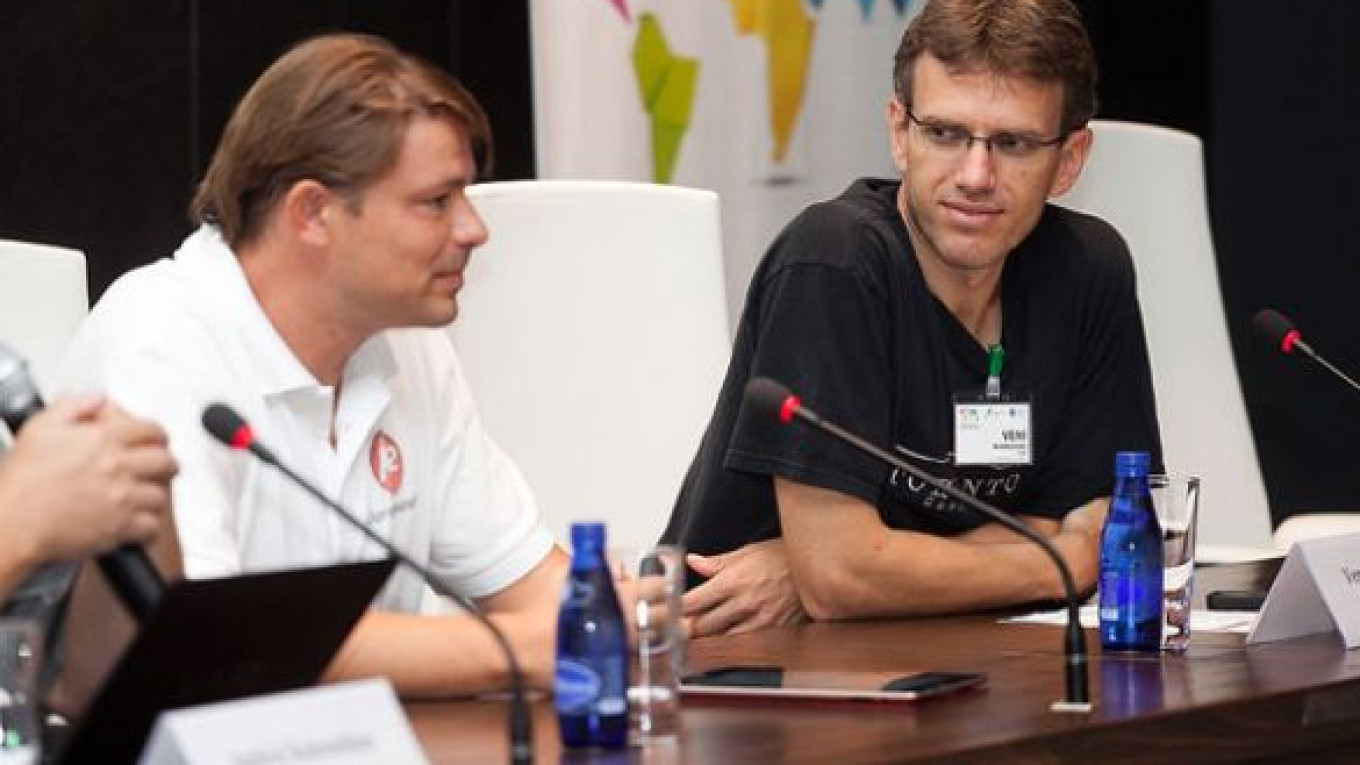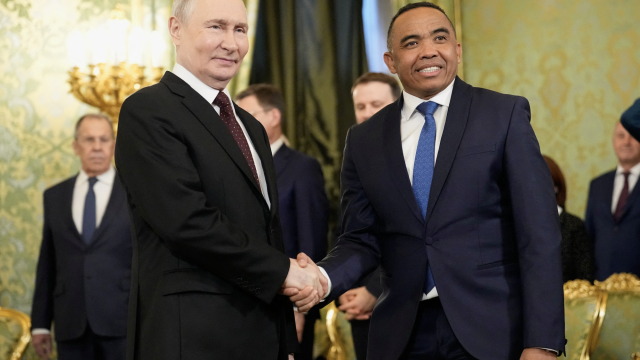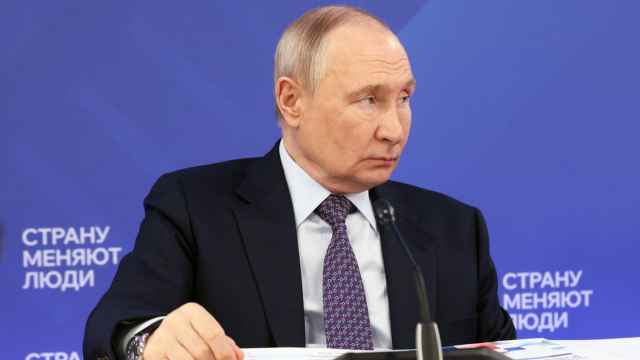Finding a restaurant in Moscow or protecting your Russian-speaking children from inappropriate information on the Internet could get easier soon thanks to this week's additions to the list of domain extensions.
Russian domain names lead the way in the biggest change to the Internet since its inception, which will see the number of generic domain name extensions increased from 22 to 1,400 in the course of the next six months.
The Internet Corporation for Assigned Names and Numbers, or ICANN, announced this week that .сайт (.site) and .онлайн (.online) are among the first four extensions that have been added to the central authoritative domain database, also known as the Internet's root zone. The other two are .web and .games, written in the Arabic and Chinese characters, respectively.
The new general top-level domains extensions, or gTLDs, are a part of ICANN's new gTLD program, designed to "enhance competition, innovation and choice in the domain name space, providing a wider variety of organizations, communities and brands new ways to communicate with their audiences," a statement from the corporation said.
Non-Latin-character domain extensions represent ICANN's effort to create a globally-inclusive Internet, regardless of language or region. In the coming months, other extensions will be launched, also in the Greek and Sanskrit alphabets.
There will also be several new Latin letter domain extensions, including .moscow, .kids and .restaurants.
The new domain names will be available to the general public after the mandatory 30-day waiting period, during which government authorities and trademark holders will have a chance to secure their domains. The exact timeframe, however, has not yet been announced.
Introduction of the "non-English" domain names will be welcomed by many people around the world, who are not familiar with the Latin script, said Veni Markovski, ICANN's vice president for Russia, CIS and Eastern Europe.
"Imagine if the Internet was created in China, and we had to switch keyboards and type domain names in Chinese! I'm sure, the introduction of the Latin-script domains would be much welcomed by us," Markovski said. "It is the same for people who are not familiar with the Latin script."
New extensions will give organizations a chance to present content fully in their own language. Internet businesses will also have new ways to express themselves, Markovski said.
Mixed Reactions
Despite the obvious enthusiasm surrounding the new gTLDs, some Internet industry veterans say new extensions will actually worsen the user experience.
Esther Dyson, who was ICANN's founding chairwoman and has extensive experience investing in Russia's high-tech sector, said the multitude of new extensions "will simply confuse things."
"They are creating more words, but not more brands, and not more space in people's heads," Dyson said.
Previously, Dyson expressed a view that domain names will eventually become obsolete.
"If I am right," Dyson said, "the domain name system will lose its value over time, and most people will get to web sites and content via social networks and apps, via Google or whatever supersedes it in the competitive marketplace."
Semra Koerner, a spokesman from Sedo, one of the world's largest domain marketplaces, shares Dyson's view that new gTLDs are likely to add confusion.
He said a recent survey, conducted by Sedo among advertising industry specialists and marketeers, indicated that more than 50 percent of the companies polled were not aware of recently added gTLDs. "There is still a lot of education that needs to be done to ensure that consumers do not feel lost in the jungle of new gTLDs, when they arrive."
However, if the concept behind each new gTLD becomes clear, it has a potential to change the users' whole navigation behavior, Koerner said.
For example, within the .restaurants extension, they could type moscow.restaurants or vegetarian.restaurants, to find exactly what they need, he said.
Easier Monitoring
One of the new extensions will be .дети (.children). It is designed to provide a safe Internet browsing experience for children.
"The sites, which will be registered in the .дети domain zone will be strictly monitored," said Andrei Kolesnikov, director of the Coordination Center for TLD RU/ОФ. "What makes this project difficult is the fact that there are very few specialists in the area of monitoring, but I am sure that we will manage to make this domain safe for the young generation."
Viktoria Bunchuk, a spokeswoman from the country's largest domain registrar Ru-Center, said that while some migration from traditional Russian domains to the new zones was expected, it would not be much.
"Users are conservative and used to the classic domains, which existed for many years and have earned some reputation," Bunchuk said.
When the .рф, standing for "Russian Federation," extension was introduced in 2010, there were fears that the classic .ru zone would lose users, Kolesnikov said.
"It did not happen. Both our national domains live splendidly with each other and successfully complement each other," he added.
There are now three domain zones considered Russian: .ru, .рф and .su, with more than 4.8 million, 830,450 and 124,300 names registered in each of them, respectively.
Contact the author at [email protected]
A Message from The Moscow Times:
Dear readers,
We are facing unprecedented challenges. Russia's Prosecutor General's Office has designated The Moscow Times as an "undesirable" organization, criminalizing our work and putting our staff at risk of prosecution. This follows our earlier unjust labeling as a "foreign agent."
These actions are direct attempts to silence independent journalism in Russia. The authorities claim our work "discredits the decisions of the Russian leadership." We see things differently: we strive to provide accurate, unbiased reporting on Russia.
We, the journalists of The Moscow Times, refuse to be silenced. But to continue our work, we need your help.
Your support, no matter how small, makes a world of difference. If you can, please support us monthly starting from just $2. It's quick to set up, and every contribution makes a significant impact.
By supporting The Moscow Times, you're defending open, independent journalism in the face of repression. Thank you for standing with us.
Remind me later.






